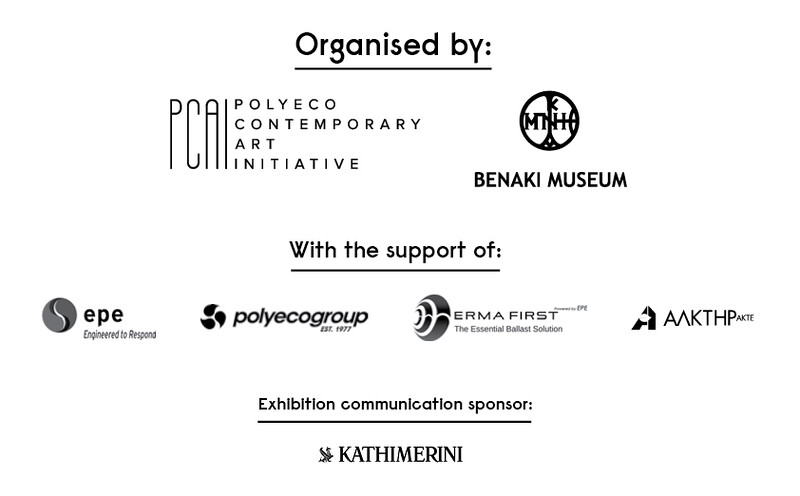March 23–May 21, 2017
Benaki Museum / Pireos 138
38 Pireos & Andronikou St.
118 54 Athens
Greece
Hours: Thursday–Saturday 10am–6pm,
Friday and Sunday 10am–10pm
T +30 21 0345 3111
benaki@benaki.gr
Is man’s relationship to the cosmos the most controversial, recalcitrant and unfinished project of humanity?
A long history of ideas, philosophies, sciences, arts, politics and global events seems to confirm this tumultuous relationship and its pending matters, as it becomes increasingly evident that treating the political in terms of a relationship limited only among humans is insufficient, and that all the world’s species, things and beings must be represented in a sustainable symbiosis.
The exhibition Paratoxic Paradoxes presents new works of moving image that explore this critical question through the contemporary viewpoint of political ecology and eco-criticism, as the latter is currently shaped at the point of intersection among arts, politics, socioeconomic demands, pedagogy and activism, beyond naive classifications, univocal readings and outdated strategies.
The exhibition is the first public presentation of a capsule of 11 original artworks created, within the last two years, through commissions to artists around the world by the cultural not-for-profit platform Polyeco Contemporary Art Initiative (PCAI) and curator Nadja Argyropoulou. The project, which began two years ago and is now presented through this exhibition, should be viewed, to a certain extent, as part of the global response and mobilization of artists, theorists, curators, scientists, activists, creative practitioners and social media initiatives in the face of climate-change tipping points and their connection to every aspect of contemporary life.
Being the first of a series of such experimental ventures pursued by the PCAI platform, this capsule begins with a study of the physical parameters and effects, the symbolic, psychological and socioeconomic implications of two—seemingly simple yet quite vague and ambiguous—terms and the multifaceted reality they reflect: “toxic” and “waste.”
It explores the parallel readings of the redundant and the rejected, of that which is manageable yet elusive, of the amorphous and the anarchic, the abundant and the dwindling, the repulsive and the repressed, the excessive and the grotesque, the viral and the virulent, the processed and the possessed.
Paratoxic Paradoxes recognises as urgent and essential the demand of thinking people, activists, artists, scientists, grass roots movements and productive forces to “stay with the trouble” of the world in symbiotic terms (as Donna Haraway voices it); to adopt a new “natural contract” by redefining our relationship with materials, nonhuman forms of life and environments and removing the waste of appropriation and exploitation until the advent of what Michel Serres calls “Mundus res nullius” (world object of none); to put a stop to colonialist manipulation and the objectification of nature; and to activate new praxis of ethical-political commitment to the world.
The event comes as yet another unexpected hub of transmission from a “Greece in crisis,” convinced that such an act is useful precisely because it seems paradoxical, overstated, superfluous; a luxury, or even “pollutant,” wasteful. And it is topical not despite the crisis but because of it.
The participating artists are: Loukia Alavanou, Sophia Al Maria, Korakrit Arunanondchai, Vasilis P. Karouk, Anja Kirschner, Eva Kot’átková, Saskia Olde Wolbers, Eva Papamargariti, Agnieszka Polska, Mika Rottenberg, Wu Tsang.
The exhibition is designed by architect Malvina Panagiotidi and complemented by a series of talks by international speakers (program to be announced), educational activities and print materials designed by Em Kei.
The Paratoxic Paradoxes project has a virtual dumpsite, designed by Eva Papamargariti and Vassiliki-Maria Plavou as an online parasitic body living in the PCAI site. People are invited to read it as Michel Serres’s “Stercorian Atlas,” where “growing appropriation has piled up hundreds of networks of marks, stains and signposts.” Links, images, texts, references, indecipherable symbols, apparitions, unclean contradictions, things that are repulsive and attractive, perittā, will be piling up, anarchically, asymmetrically, subject to contingency and circumstance. Guests can dig in and decide what to salvage, reuse, criticize, bury deeper or ignore; to test how disposal can become dis-appropriation, liberation, of at least one site.
For more information please contact: info [at] pcai.gr
The Polyeco Contemporary Art Initiative is a not-for-profit organization aimed at raising the public’s environmental awareness through an original artistic programme and a commission based art collection that creatively confronts the key issue of waste management.

